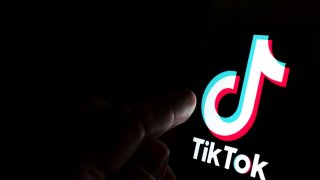TikTok Mastered Mindless Entertainment—and Is Being Punished for It
Kicking TikTok or its Chinese parent out of the U.S. social media cesspool will not mean safety from lies and misrepresentations.
The U.S. House of Representatives recently voted—swiftly and overwhelmingly—to ban the popular social media app TikTok unless its Chinese parent company, ByteDance, divests ownership within six months.
In supporting the bill, members of both the Left and the Right pointed to the risk of mass misinformation. Through TikTok, Beijing could spread Chinese propaganda to the American public. Under Chinese law, the Communist government can compel ByteDance to undertake or assist Beijing’s subversive activities.
While this concern is legitimate, the pending legislation would do little to address the prevailing problem of misinformation on social media.
The House bill, which currently awaits action in the Senate, does not actually ban apps that spew propaganda from hostile foreign governments. Apps of China’s state-owned media, including the Xinhua News Agency, China Daily, and the Global Times—all of which openly and dutifully promote anti-American, pro-Beijing, pro-Communist narratives—would remain accessible in smartphone app stores in the U.S. market.
The proposed law also would not ban apps that spout falsehoods from other countries with interests adverse to America, such as Venezuela and Qatar. Although Qatar-based Al Jazeera has long been accused of shilling for terrorists, including Hamas, its app will continue to be freely available in America.
No one is arguing that these apps should be banned. However, The latest legislation would ban or force divestitures of TikTok and apps controlled by one of four named foreign adversary countries—China, Iran, North Korea, and Russia—and have more than one million monthly active users in America. Other Chinese apps that have achieved the requisite level of usage in America, including messaging app WeChat and payment app Alipay, could find themselves in TikTok’s unenviable position were the House bill to become law.
Ironically, promoting malign influence and outright lies on behalf of countries that Congress has officially deemed adversarial is not enough to trigger congressional action. Hard work, ingenuity, innovation, entrepreneurship, and other ingredients contributing to corporate accomplishments and widespread popularity must apparently exist before an app is deemed a national security threat.
And success is something that TikTok has undoubtedly achieved. Released in the United States only seven years ago, the app has now amassed 170 million American users.
This has led comedian Ronnie Chieng to joke, “China made an app so popular that [our] government has to ban it? That means Communist China beat free-market America at capitalism, all right? ... China beat us so bad at mindless entertainment we need the government to save us?”
For TikTok users, Washington’s effort to “save us” could cost them dearly. A recent Oxford Business study found that small businesses that use TikTok support 224,000 jobs in America. These businesses, along with creators ranging from artists to activists, have flooded Congress with messages about what a potential TikTok ban might mean for them: financial ruin; loss of community, platform, and voice; and non-viable or undesirable alternatives to recreate the successes they have built.
Demonstrating the vast disconnect between Congress and ordinary citizens, Republican Representative Mike Gallagher of Wisconsin, chief architect of the TikTok legislation, has dismissively characterized the app as being about “dumb dance videos” and “friends and all that stuff.”
“All that stuff” just happens to be about Americans’ lives and livelihoods. In the past few weeks, TikTok influencers have loudly complained that lawmakers do not fully understand the medium and technology they seek to restrict. In a video about the House’s rapid vote to pass the recent legislation, TikTok influencer KingBach, who has more than 28 million followers, exclaimed, “Damn, everybody’s careers just vanished and nobody cares!”
That is a high price to pay to root out misinformation. Yet the proposed TikTok ban would do nothing to stop organized misinformation campaigns from big American tech companies. After all, in recent years, they routinely censored, misled, and politically manipulated the American public on major issues, including the origin of the pandemic, the validity of the Hunter Biden laptop story, and much, much more.
Kicking TikTok or its Chinese parent out of the U.S. social media cesspool will not mean safety from lies and misrepresentations.
Certainly, Washington has good reasons to worry about TikTok and Chinese influence, such as national security concerns over data privacy, espionage risk, and theft of U.S. intellectual property. However, the government of a free country should trust and empower its citizens and institutions to withstand foreign manipulation of news and information rather than ban the media through which they may materialize.
Remember, TikTok would not be facing a ban or a forced divestiture had it not done a better job than its more powerful American competitors to appeal to the American audience. Washington does not have to care about TikTok’s success. Still, it should certainly care about and listen to Americans who appreciate, depend on, and express themselves through this social media app.
Ying Ma has worked on China-related issues for nonprofits, the U.S. Congress, and the private sector. She previously managed public relations for Sina, the first Mainland China-based Internet company to list on the Nasdaq Stock Exchange. Follow her on X: @GZtoGhetto.
Image: Shutterstock.com.

